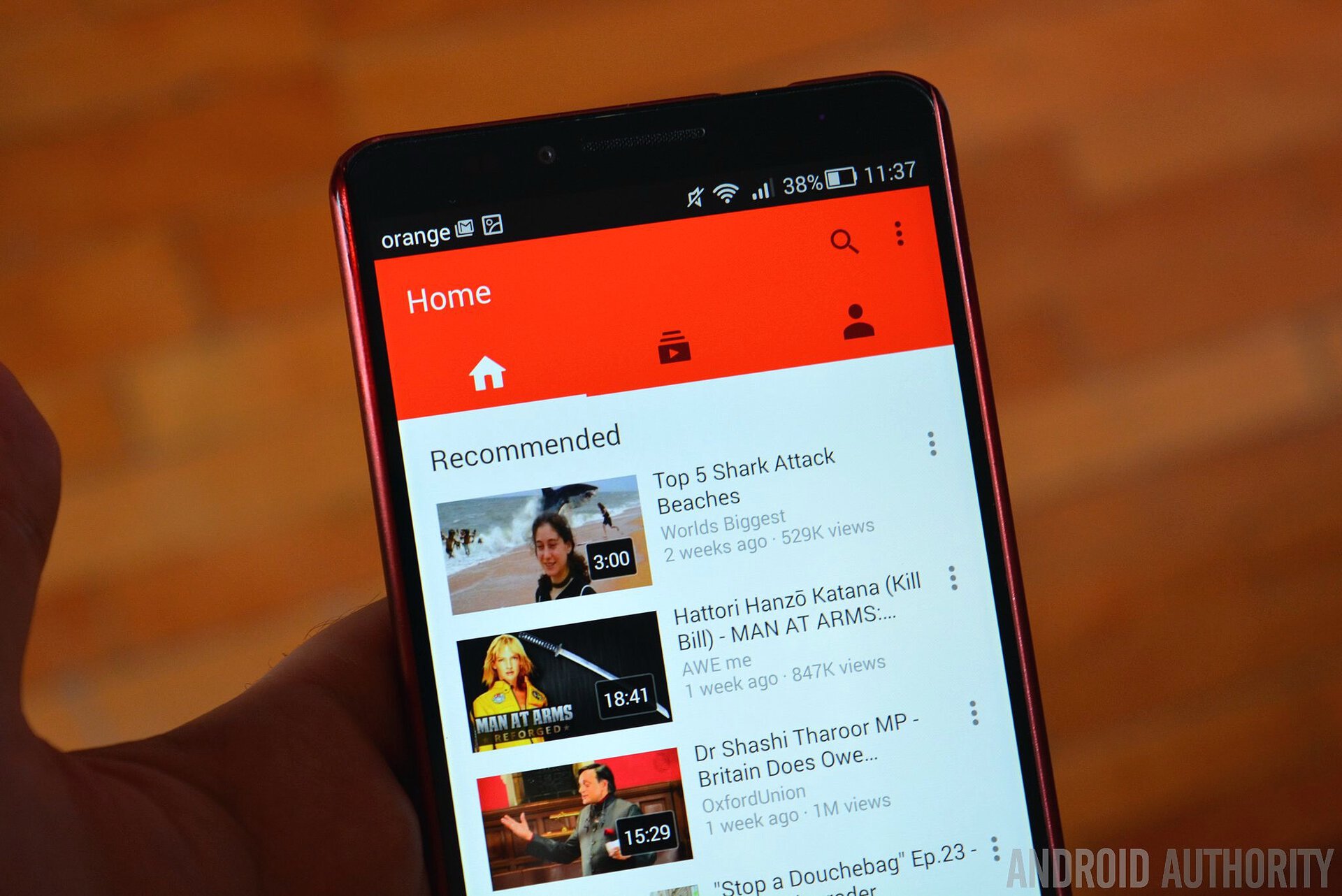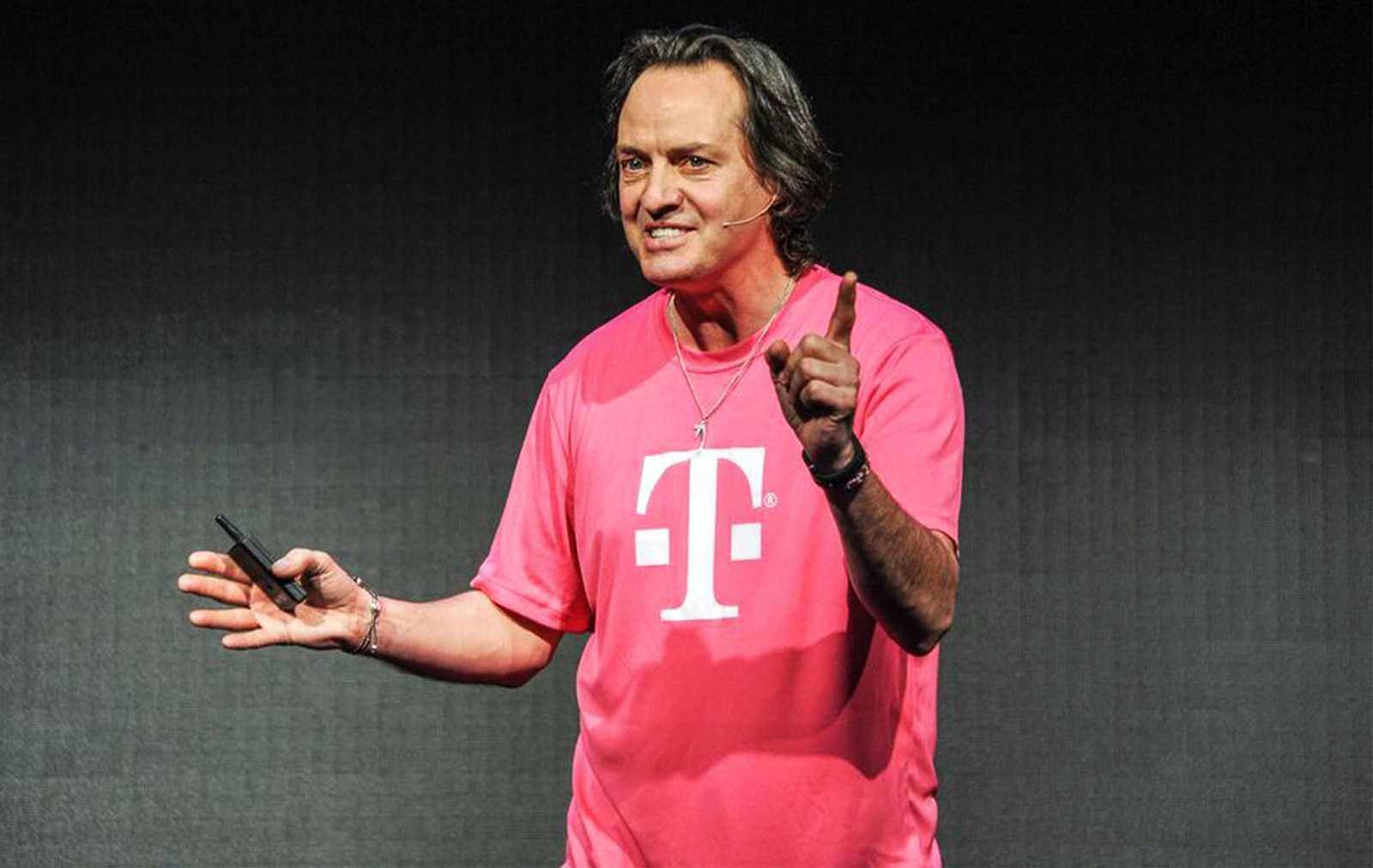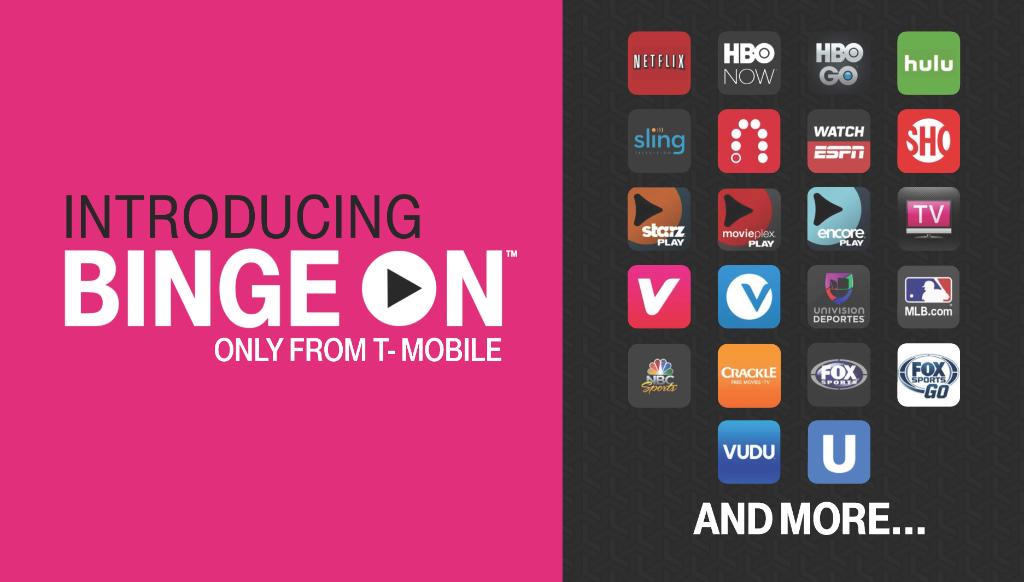Affiliate links on Android Authority may earn us a commission. Learn more.
T-Mobile CEO colorfully dismisses allegations of Binge On throttling
Published onJanuary 7, 2016
The ever-controversial T-Mobile CEO John Legere took to Twitter and YouTube today, denouncing any allegations of throttling as unsubstantiated. He went on to claim that the data ‘optimization’ Binge On users are subjected to is no different than an automobile manufacturer putting on economy option on their vehicles.
The origins of these criticisms come primarily from YouTube. The video streaming giant alleged that T-Mobile was degrading video quality of streaming content being delivered to T-Mobile users. YouTube took issue with this, especially because they are not one of the services that have partnered with the Binge On program.
There are people out there saying we’re throttling. That’s a game of semantics and it’s bullshit.
It appears that what T-Mobile is doing is ‘optimizing’ video streaming data across the board for any users on the program, regardless of whether or not that streaming is coming from a Binge On source. Legere calls this “adaptive video technology” that is intended to”‘stretch” data usage. This way, video-hungry Binge On users can still feel freer about using their data to stream content from services that aren’t a part of Binge On. “You get the same quality of video as watching a DVD but now use only one-third of your data – or, of course, no data when it’s a Binge On content provider. That’s not throttling!”

YouTube asserted that “Reducing data charges can be good for users, but it doesn’t justify throttling all video services, especially without explicit user consent.” Google has naturally sided with YouTube in this issue, which is unsurprising considering both are owned by Alphabet Inc. Google has also expressed concerns related to net neutrality in the issue.
Legere, however, disagrees with YouTube’s definition of throttling. “What throttling is is slowing down data and removing customer control. Let me be clear: Binge On is neither of those things.”
This is no different than a car manufacturer adding an economy feature on your car.
The Electronic Frontier Foundation seems to believe that this is all well and good… supposing T-Mobile customers are aware that their video quality will be degraded across the board if they choose Binge On. However, this doesn’t seem to be the case right now. In a blog post, the foundation reported that these side-effects of signing on with the program are buried deep in the fine print. They emphasized that if T-Mobile would be more forthright with their customers about how this program could affect their service if they choose to opt in, then the company would be obtaining more “meaningful customer consent.” As it stands, they find T-Mobile to be misleading their customers.

Legere dismisses these criticisms, citing the amount of love the program has received on social media since its inception. He even went so far as to express bewilderment at the recent fire Binge On has come under. “So why are special interest groups, and even Google, offended by this?” he asks in the video released today. “Why are they trying to characterize this as a bad thing? I think they may be using net neutrality as a platform to get into the news.”

What are your thoughts regarding the controversy surrounding T-Mobile’s supposedly binge-friendly data plan? On the one hand, it looks like giving customers the option to choose reduced video quality in favor of lower – or nonexistent – data costs is a reasonable trade-off customers may want to consider. On the other, it does seem like the downsides of Binge On were kind of kept under wraps as it was rolled out. Moreover, there is the issue of net neutrality to consider. Where do you stand in this? Let us know in the comments!